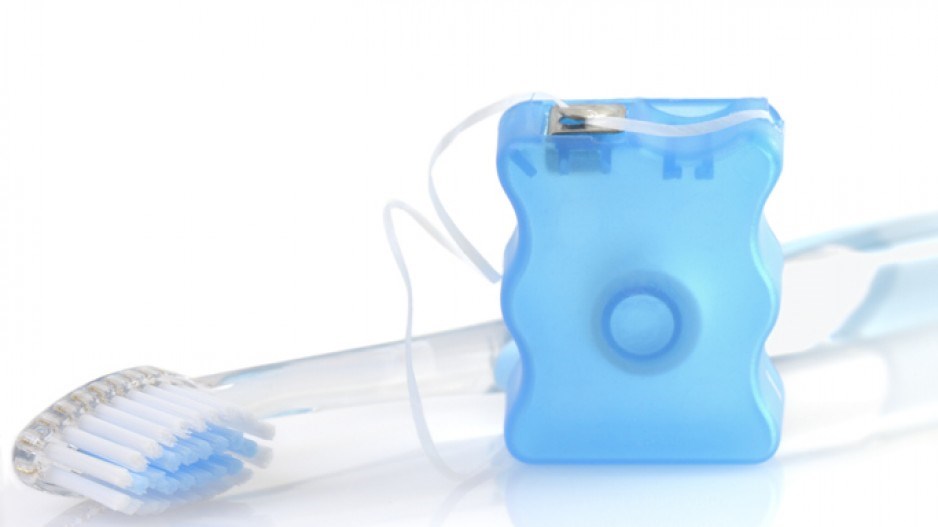Health care has long been regarded as a source of pride for many Canadians.
The fact that most of us share the same language as residents of the United States has led to many social media threads where Canadians joyfully point out the benefits of a universal system.
In recent years, there have been hints at bringing dental well-being fully under Canada’s health-care umbrella. Visiting a dentist can be expensive and cumbersome, especially at a time when more Canadians are working on their own and can no longer rely on the plans provided by large companies or universities.
Research Co. and Glacier Media recently had a conversation with Canadians about dental health and found that we are lacking in two areas: a proper assessment of what is going on inside our mouths and a lack of discipline to take care of ourselves. As expected, there are significant differences in gender and age as far as our teeth are concerned.
Just over one in four Canadians (26%) did not visit the dentist over the past year. This includes 33% of residents of Manitoba and Saskatchewan, 30% of Quebecers and 35% of those in the lowest household income bracket. Almost two-thirds of Canadians (64%) went to the dentist once or twice over the past 12 months, while 10% had to be on the chair three or more times.
When it comes to following the advice of our dentist, the numbers are disheartening.
Across the country, only 17% of Canadians say they brush their teeth “three times a day or more.” A majority (55%) claim to brush twice a day, and about three in 10 (29%) brush once a day or less.
Quebecers and Atlantic Canadians are more likely to follow the advice of dentists, with 23% of residents brushing three times a day or more. The proportion drops to 16% in British Columbia, 15% in Manitoba, Saskatchewan and Ontario and a painfully low 9% in Alberta.
While only 24% of women admit to brushing their teeth once a day or less, the proportion jumps to 32% among men. This is an area where baby boomers are not performing well. While 38% of Canadians aged 55 and over brush once a day or less, the numbers fall to 24% among those aged 35 to 54 and 22% among those aged 18 to 34.
On other behaviours, Canadians have been slow to adapt. Dental floss, long seen as essential in avoiding painful visits to the hygienist, is used less than once a day by 41% of Canadians – including 48% of those aged 55 and over.
Tongue cleaners are even less popular, with 37% of Canadians saying they rely on them at least daily. The predominance of a mouthwash or rinse is slightly better, at 54%. This still leaves 46% of Canadians who do not reach for the little plastic bottle at least once every 24 hours.
While many of us are working from home due to the COVID-19 pandemic, dental care can follow us to our offices. At this stage, just over half of Canadians (54%) say they have a toothbrush handy when they are away from home on an average day that does not entail travel. Again, Quebec leads the country (61%) with residents of Saskatchewan and Manitoba way behind (39%).
When it comes to agents that could hide bad breath, Canadian women are decidedly thoughtful. Almost half (46%) say they have chewing gum handy when they are away from home, compared with just 31% of men. More than a third of Canadian women (36%) carry mints in their pockets or purses, while only 26% of men follow suit. Oddly enough, men are more likely to claim to take mouthwash with them (33%) than women (25%).
The federal New Democratic Party (NDP) has proposed the creation of a national dental care plan, which seeks to provide complete, federally funded dental coverage to uninsured Canadians with a household income lower than $70,000 a year.
The idea, first expressed during the 2019 federal election campaign, is very popular with Canadians. More than three in four (77%) would like to see a national dental care plan, including 79% of Canadians in the lowest income bracket and 83% of those who voted for the governing Liberal Party of Canada last year.
The appetite for a dental health strategy is high, but it is not clear if the federal government will give it careful consideration. After reviewing our self-reported behaviour, and the low numbers of Canadians who carry chewing gum, mints or mouthwash when outside the home, the face masks that COVID-19 has forced us to wear might be a blessing. •
Mario Canseco is president of Research Co.
Results are based on an online survey conducted from August 1 to August 3, 2020, among 1,000 adults in Canada. The data has been statistically weighted according to Canadian census figures for age, gender and region in Canada. The margin of error, which measures sample variability, is plus or minus 3.1 percentage points, 19 times out of 20.




